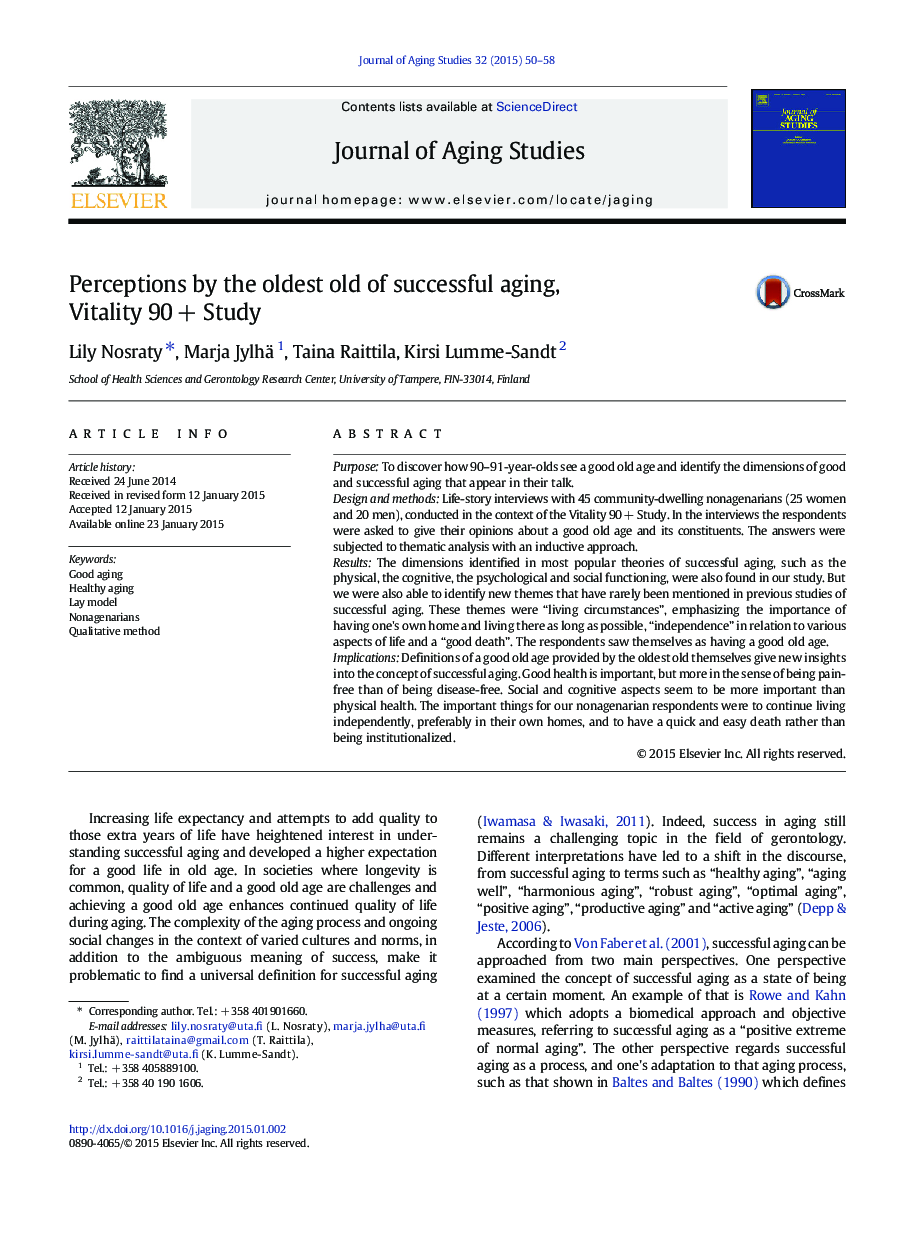| Article ID | Journal | Published Year | Pages | File Type |
|---|---|---|---|---|
| 1081804 | Journal of Aging Studies | 2015 | 9 Pages |
•We analyze how 90-year-olds themselves see a good old age.•Exploring lay views of a good old age benefits studies of successful aging.•Independence and ability to live in one's own home is emphasized.•A good death is mentioned as one component of good aging.•Aging is a process and earlier life is part of a good old age.
PurposeTo discover how 90–91-year-olds see a good old age and identify the dimensions of good and successful aging that appear in their talk.Design and methodsLife-story interviews with 45 community-dwelling nonagenarians (25 women and 20 men), conducted in the context of the Vitality 90 + Study. In the interviews the respondents were asked to give their opinions about a good old age and its constituents. The answers were subjected to thematic analysis with an inductive approach.ResultsThe dimensions identified in most popular theories of successful aging, such as the physical, the cognitive, the psychological and social functioning, were also found in our study. But we were also able to identify new themes that have rarely been mentioned in previous studies of successful aging. These themes were “living circumstances”, emphasizing the importance of having one's own home and living there as long as possible, “independence” in relation to various aspects of life and a “good death”. The respondents saw themselves as having a good old age.ImplicationsDefinitions of a good old age provided by the oldest old themselves give new insights into the concept of successful aging. Good health is important, but more in the sense of being pain-free than of being disease-free. Social and cognitive aspects seem to be more important than physical health. The important things for our nonagenarian respondents were to continue living independently, preferably in their own homes, and to have a quick and easy death rather than being institutionalized.
